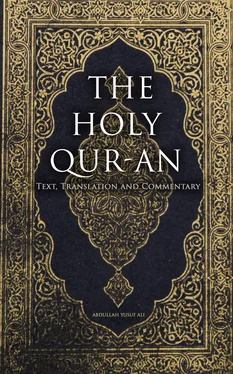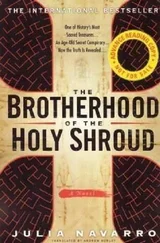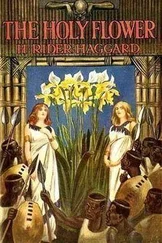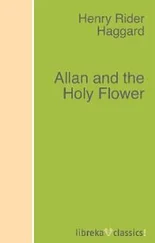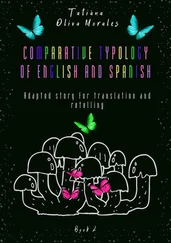Abdullah Ali - The Holy Qur-an - Text, Translation and Commentary
Здесь есть возможность читать онлайн «Abdullah Ali - The Holy Qur-an - Text, Translation and Commentary» — ознакомительный отрывок электронной книги совершенно бесплатно, а после прочтения отрывка купить полную версию. В некоторых случаях можно слушать аудио, скачать через торрент в формате fb2 и присутствует краткое содержание. Жанр: unrecognised, на английском языке. Описание произведения, (предисловие) а так же отзывы посетителей доступны на портале библиотеки ЛибКат.
- Название:The Holy Qur-an: Text, Translation and Commentary
- Автор:
- Жанр:
- Год:неизвестен
- ISBN:нет данных
- Рейтинг книги:5 / 5. Голосов: 1
-
Избранное:Добавить в избранное
- Отзывы:
-
Ваша оценка:
- 100
- 1
- 2
- 3
- 4
- 5
The Holy Qur-an: Text, Translation and Commentary: краткое содержание, описание и аннотация
Предлагаем к чтению аннотацию, описание, краткое содержание или предисловие (зависит от того, что написал сам автор книги «The Holy Qur-an: Text, Translation and Commentary»). Если вы не нашли необходимую информацию о книге — напишите в комментариях, мы постараемся отыскать её.
The Holy Qur-an: Text, Translation and Commentary — читать онлайн ознакомительный отрывок
Ниже представлен текст книги, разбитый по страницам. Система сохранения места последней прочитанной страницы, позволяет с удобством читать онлайн бесплатно книгу «The Holy Qur-an: Text, Translation and Commentary», без необходимости каждый раз заново искать на чём Вы остановились. Поставьте закладку, и сможете в любой момент перейти на страницу, на которой закончили чтение.
Интервал:
Закладка:
(4) An opposite error sometimes arises because in certain matters the rich vocabulary of the Qur'ān distinguishes between things and ideas of a certain kind by special words, for which there is only a general word in English. Instances are: Rahman and Rahīm (Most Merciful); see 1:1 n.; afā , safaha , gafara (to forgive): see 2:l09 n.; and the various words for Creation; see 2:117 n. The fact is that it gives us a very limited idea of God’s Mercy, when we only use the English word "mercy": the Quranic idea implies not only pity and forgiveness but the Grace which protects us and keeps us from sin, and indeed guides us to the light of His "Countenance.” So the "forgiveness" of God is a thing totally different in quality from the forgiveness which a man can give to his brother man: the equation implied in "Forgive us our trespasses as we forgive those that trespass against us" is a misleading fallacy. So, again, "Creation" is not just a simple process done by God at some remote time and finished with: the Quranic idea implies various processes and the continuous presence and activity of God in His Creation.
(5) God’s purpose is eternal, and His plan is perfect, but man’s intelligence is limited at its very best. In the same individual it grows and declines according to the strength of his powers and the width of his experience. If we take mankind collectively the variations are even greater from age to age and from people to people. There is thus no finality in human interpretation. And in the thing interpreted–God’s Creation–there is constant flux and change. So that the impact of the one on the other must yield diverse results. The view of Kunchinjunga must vary infinitely according to the position of the observer, even if Kunchinjunga remained the same. But if Kunchinjunga itself varies, there is a double cause of variation in the view. So I believe in progressive interpretation, in the need for understanding and explaining spiritual matters from different angles. The difficulties that confront me may not be the same as those that confront you. The problems which our age has to meet may not be the same as the problems which puzzled earnest minds of the fourth or sixth or later centuries of the Hijra. Therefore it is no merit to hug the solutions offered in the fourth or sixth centuries when our souls cry out in hunger for solace in the fourteenth century of the Hijra.
The distinction drawn by Commentators between matters of report ( manqūlāt ) and matters of judgment ( ma‘qūlāt ) is a sound one, and l heartily accept it. But l would extend the scope of the ma‘qūlat far beyond questions of idiom and meaning. In the former the issues are; what actually happened, or what was actually said, or how were certain things done? Here the closer we go back to contemporary authority, the better. In the latter, the issues are: what is the bearing of this truth on our lives, or what illustration helps us best to grasp this, or what is the wisdom we can extract from this? In such matters, the closer we come to our own circumstances and experiences, the better. It is not only our right but our duty to seek honestly our own solutions, and while we respect authority, we must not neglect or despise the gifts which God has accumulated for us through the ages.
The principles on which I have worked may be briefly stated. In matters of philology and language l accept the best authority among those who were competent to deal with these questions: the older the better. In matters of narration, contemporary authorities are best, subject to such corrections as have to be applied for their points of view. As to the particular occasions on which particular verses were revealed, the information is interesting and valuable from a historical point of view, and our older writers have collected ample material for it. But to lay too much stress on it to-day puts the picture out of all perspective. The Qur'ān was not revealed for a particular occasion only, but for all time. The particular occasion is now past. Our chief interest now is to see how it can guide us in our present lives. Its meaning is so manifold, and when tested, it is so true, that we should be wise to concentrate on the matters that immediately help us. So in nature plants seek out of the soil just that food which gives them nourishment. There is plenty of other food left in the soil, which other plants take, which can digest it. In matters of remote history or folk lore, we must take the results of the latest researches. In interpreting Jewish or Christian legends or beliefs we must go to Jewish or Christian sources, but by way of illustration only, not in the direction of incorporating such beliefs or systems. Though they were true in their original purity, we are not sure of the form which they subsequently took, and in any case the fuller light of the sun obscures the lesser light of the stars.
In the application of spiritual truths to our own times and our own lives, we must use every kind of knowledge, science, and experience which we possess, but we must not obtrude irrelevant matter into our discussions. Let us take simple examples. When we speak of the rising of sun in the east, we do not go on to reconcile the expression with the Copernican system of astronomy. What we ‘’mean’‘ is as true under the Copernican system as it was under the Ptolemaic system. When we speak of the endless plains of India, we are not put on our defence because the earth is round. Nor will such poetic expressions as the seven firmaments raise questions as to the nature of space in modern astronomy. Man`s intellect is given to him to investigate the nature of the physical world around him. He forms different conceptions of it at different times. Spiritual truths are quite independent of the question which of these conceptions are true. They deal with matters which are beyond the ken of physical science. In explaining or illustrating them we shall use such language as is current among the people to whom we speak.
Let me set out the names of the most important Tafsīrs , especially those to which I have from time to time referred. They are not, however, in any sense my authorities. They belong to widely different schools of thought, and some of them express extreme views with which I do not agree. I only adopt the general sense of accepted Commentaries.
(1) The monumental work of Abū Ja'far Muhammad Ibn Jarīr Tabarī, d. 310 H. A perfect mine of historical information, as the author was both a historian and a Traditionist. Copies are not easily accessible.
(2) The Mufradāt , a dictionary of difficult words and phrases in the Qur'ān, by Abul-Qasim Husain Ragib, of Ispahan, d. 503 H. Also explains allusions.
(3) The Kashshāf , by Abul-Qasim Mahmūd Zamakhsharī , of Khwārism , d. 538 H. Very full in the explanation of words and idioms; takes a decidedly rational and ethical view of doctrine. Numerous Commentaries have been written on this Commentary.
(4) Tafsīr Kabīr , by Fakhr-ud-din Muhammad Rāzī , d. 606 H. Very comprehensive. Strong in interpretations from a Sūfī or spiritual point of view.
(5) Anwār-ut-Tanzīl , by Qādhī Nasīr-ud-din Abū Sa‘id Baidhāwī , d. 685 H. Has drawn largely from the Mufradāt , the Kashshāf , and the Tafsīr Kabīr , but incorporates a good deal of original matter. A very popular Commentary, on which again numerous Commentaries have been written.
(6) The Tafsīr of Abul-Fidā lsmā‘īl Ibn Kathīr , d. 774 H. Voluminous, but has great authority among the ’Ulamā.
(7) Itqān fī ‘ulūm-il-Qur'ān . by Jalal-ud-din Suyūtī, d. 911 H. A comprehensive review of the sciences of the Qur'ān, being an introduction to his Majma‘ul-Bahrain .
Читать дальшеИнтервал:
Закладка:
Похожие книги на «The Holy Qur-an: Text, Translation and Commentary»
Представляем Вашему вниманию похожие книги на «The Holy Qur-an: Text, Translation and Commentary» списком для выбора. Мы отобрали схожую по названию и смыслу литературу в надежде предоставить читателям больше вариантов отыскать новые, интересные, ещё непрочитанные произведения.
Обсуждение, отзывы о книге «The Holy Qur-an: Text, Translation and Commentary» и просто собственные мнения читателей. Оставьте ваши комментарии, напишите, что Вы думаете о произведении, его смысле или главных героях. Укажите что конкретно понравилось, а что нет, и почему Вы так считаете.
